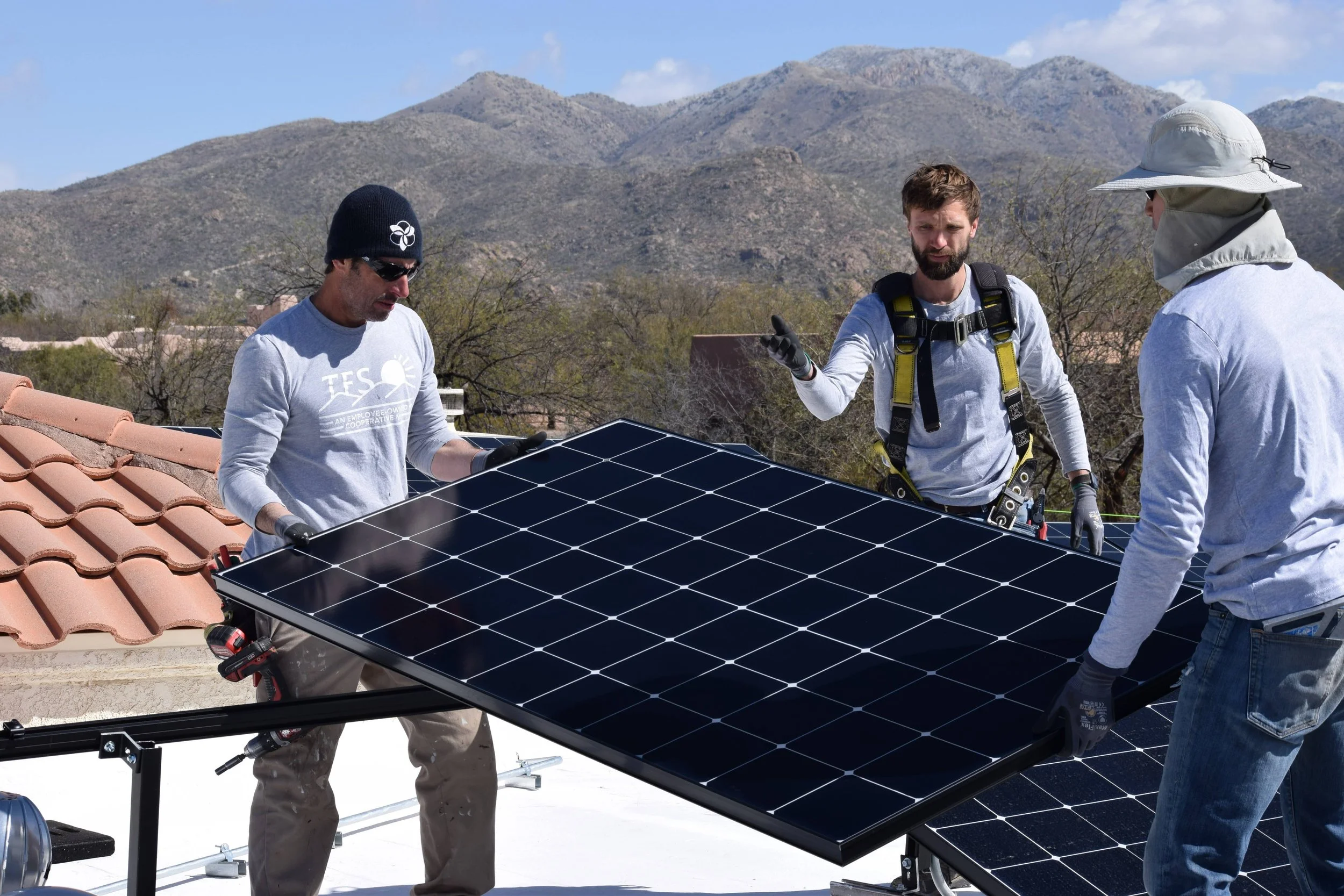Here are 11 questions we hear most often from Tucsonans looking to get solar for their homes.
1. How much do solar panels cost in Tucson?
The average residential solar system in Tucson costs $2.60–$3.20 per watt (closer to $3.20/w with batteries) before incentives — roughly $20,000 for an 8 kW system (or closer to $25,000 with batteries).
2. How much can I save by going solar in Tucson?
Most Tucson homes save $1,400 ($1,900 w/ batteries) per year on electricity, depending on usage and utility rates. Most homeowners are able to qualify for the $1,000 Arizona tax credit, to further reduce the price of going solar. Savings add up faster because of Tucson’s high solar production (around 1,600–1,800 kWh per kW installed each year).
3. How does going solar help avoid rising electricity costs?
Electricity rates in Arizona have steadily increased over the years. Nationwide, there are sharp rises due to the rising energy consumption of AI and data center infrastructure. By installing solar, you can control your energy costs for decades, generating much of your own power rather than buying it from the utility. Every kilowatt-hour your system produces is one you don’t have to purchase at an ever-increasing price. Over 25 years, this protection from rate escalation can make solar savings even more dramatic than what you see in the first year.
4. Are there Arizona solar incentives in 2026?
Yes. Arizona state offers a $1,000 state income-tax credit for residential solar.
Some utilities also offer battery incentives, like this one with Tucson Electric Power (TEP).
5. Do solar panels work well in Tucson’s heat?
Yes — high-quality panels are tested to perform in extreme desert temperatures. All solar panels see some performance loss with higher temperatures, but Tucson’s abundant sunshine more than makes up for that loss over the course of the year. In fact, the Tucson area has some of the highest solar energy yields in the world!
And thanks to our dry climate, panels rarely if ever need manual cleaning, as occasional rain or wind is typically all that's needed to keep them operating efficiently.
6. How long does it take to install solar panels?
From signed contract to system activation, most Tucson residential projects take 10-24 weeks. Permitting, HOA, and utility approval can be the longest steps; installation itself usually takes one to three days.
7. What size solar system do I need for my home?
While there is no one-size-fits-all, a typical Tucson household uses 1,000–1,500 kWh per month and may need an 8 kW system.
Your exact size depends on energy use, available roof space, and whether you plan to add an EV charger or battery.
8. Should I add a battery to my solar system?
Most Tucsonans add batteries because it saves more money off of their electric bill each month, and has the added benefit of providing backup power in the event of a grid outage.
9. What are the best solar panels for Tucson?
Look for panels rated for high heat tolerance and low degradation rates, such as those from REC, Hanwha Qcells, or Silfab. Quality inverters (like Enphase, Tesla or SolarEdge) also matter for reliability in our desert climate.
10. Will my home still have power during an outage?
Standard grid-tied solar systems shut off automatically during outages for safety. If you install a battery system or hybrid inverter, your solar can keep powering some or all circuits when the grid is down.
11. How do I choose the right solar installer in Tucson?
Compare companies with strong local experience, licensed NABCEP installers, and positive verified reviews.Ask about workmanship warranties and who handles permits, design, and utility interconnection.
Beware of websites that offer quotes from multiple installation companies, as they are generally paid to promote those companies, and won’t offer you the high level of referral that you’re likely to get from word of mouth. Consider local solar companies, who are more likely to have real people to provide you with good service over the longterm, as well as reduced delays on your project due to understanding the local requirements.
Ready to learn more?
Continue exploring what it looks like to install solar on your home and what makes TFS unique among renewable energy companies:


